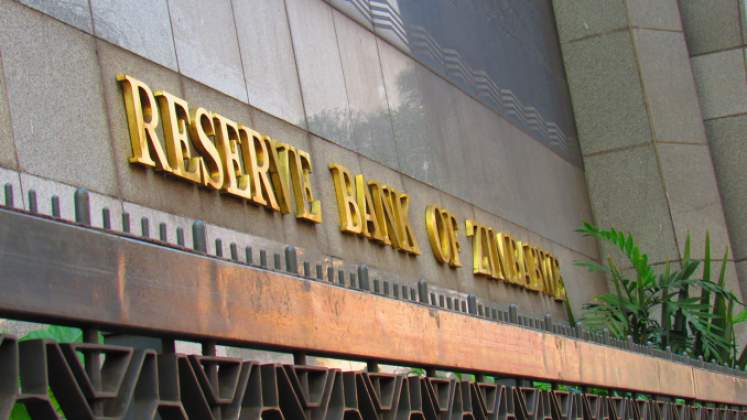The Reserve Bank of Zimbabwe (RBZ) has blamed Zimbabwean’s lack of confidence in the local currency as a contributing factor to the skyrocketing exchange rates seen on the market.
Exchange rates shot up last week, where US$1 fetched an average of ZWL$40 on the parallel market, causing prices of goods and services to spiral upwards.
Speaking at a public opinion space hosted by Women’s Institute for Development Leadership (WILD) Friday, RBZ Deputy Governor, Dr Khuphukile Mlambo, said the market was affected by non-economic factors such as lack of confidence in the local currency, whose effects could be seen in the fluid exchange rates witnessed in the end of February 2020.
“We have non-economic factors that affect the exchange rate and the principal of this is confidence. If you monitor the exchange rate in Zimbabwe right now, like what happened this past week from the start of February, the exchange rate between the US dollar and the ZimDollar sat for a long time around 1:18 to 1:20 but within the same week, the rate moved up to 1:30 and onwards within a day or two,” said Dr Mlambo.
“This week, the exchange rate behaved the same, shooting up from 1:30 to 1:34 and 1:35. Yesterday the black market rate was at 1:40. We need to understand what is causing the black market rates to shoot, is it because RBZ did something wrong as some people think?”
The opinion space discussion was held under the theme, ‘Government taxation and its effects on women in Zimbabwe.’
The RBZ Deputy Governor said the biggest movers of foreign currency exchange rates are rumours and lack of confidence in local systems.
“I am not saying economic factors are not contributing to the unstable market rate, they are, but the biggest mover of foreign currency rates are rumours and lack of confidence. The exchange rates I spoke about, which occurred at the end of February and early this month are caused by rumours motivated by what people think the central bank will do. If people think RBZ will float the currency, people panic and start buying forex.”
RBZ Deputy Governor, Dr Khuphukile Mlambo.
Dr Mlambo claimed Zimbabwe received more foreign currency in 2019 and during the first two months of 2020 than Tanzania and Ethiopia yet the exchange rates in those countries was stable.
“By comparison with those two countries, Zimbabwe’s exchange rates are fluid and we do not have an efficient way of circulating foreign currency to the whole country. Let me explain the fundamentals properly, at the end of 2020, Zimbabwe received US$6.9 billion in foreign inflows, nearly US$7 billion and we have a population of 14 million in this country. For January and February, the country has already received US$ 980 million inflows,” he said.
“I will compare Zimbabwe with two examples that of Ethiopia and Tanzania. In 2018, Ethiopia earned US$3.7 billion yet Zimbabwe earned US$4.2 billion that same year. How is it possible that Tanzania, which has less foreign currency has stable exchange rates and Ethiopia, which has 150 million people had US$1.7 billion but their rates are stable.”
RBZ Deputy Governor, Dr Khuphukile Mlambo.
The RBZ deputy governor noted the cause behind the skyrocketing exchange rate was “clearly not about foreign currency” but highlighted there were inefficient ways of distributing funds to the whole country, which “is the problem” but refused to say this could be “the main challenge causing the instability.”
Meanwhile, the RBZ official said the central bank was working on addressing these challenges alongside with the Minister of Finance and Economic Development by moving away from a fixed exchange rate and managing it by intervening every time the exchange rate skyrockets.
“We moved away from a fixed exchange rate in February and now we are working on what is called the crawling rate. This is an exchange rate that you change from time to time depending on the circumstances, for example, the exchange rate for fuel would be changed every two weeks, which we would be announcing so that is a crawling rate,” he said.
“The other option will be to let the exchange rate float freely but that is very dangerous because when it floats freely, you do not know where it is going to end, so we want to manage it. We have opted to manage it, by managing the floating exchange rate and if we think the rate is going too fast and too far, we intervene. If the exchange rate is too low and we think it should be higher, we will also intervene but of course it can never be low enough.”

